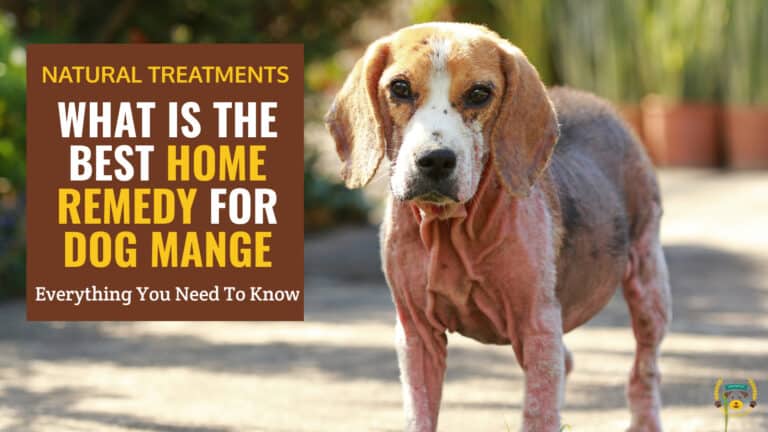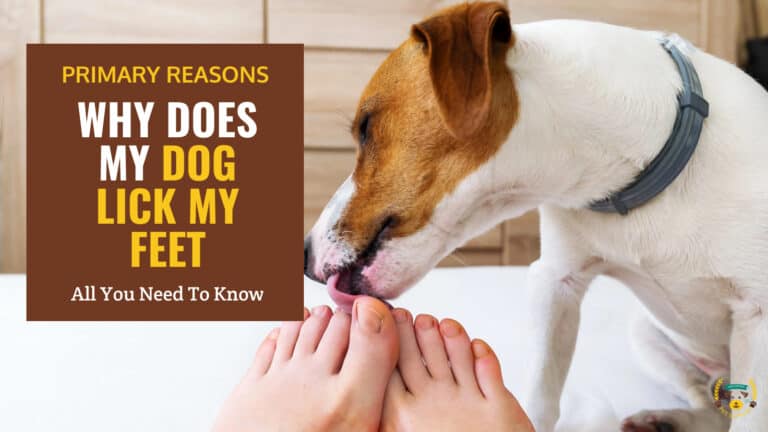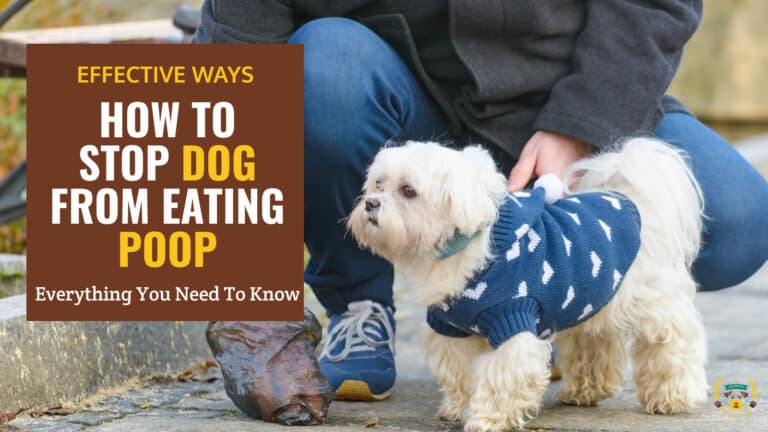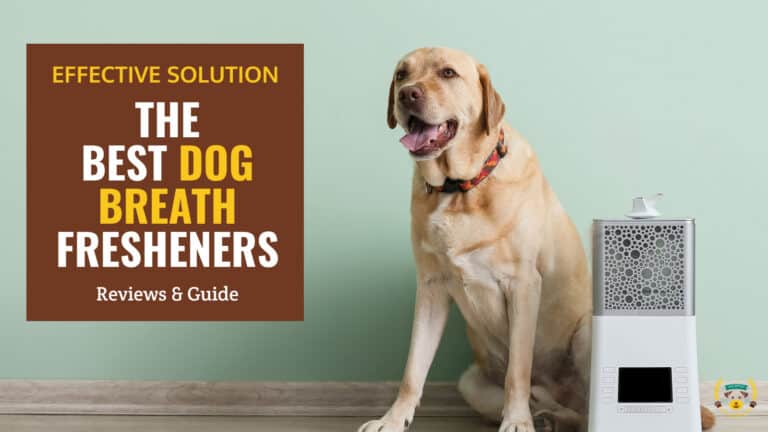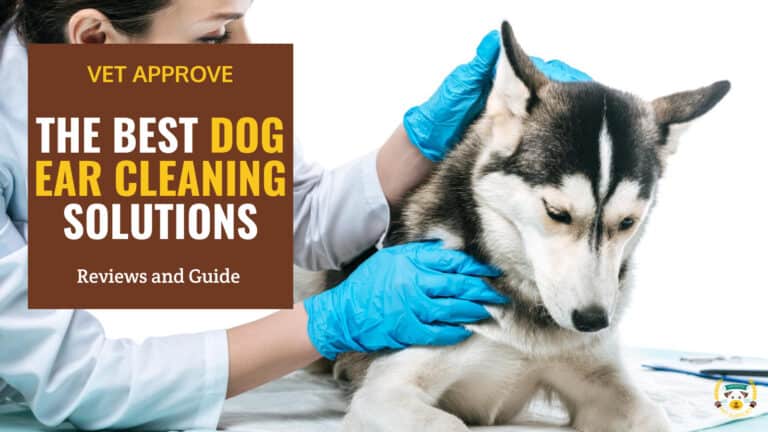Why Is My Dog Sneezing so Much?
Last updated: March 19, 2024
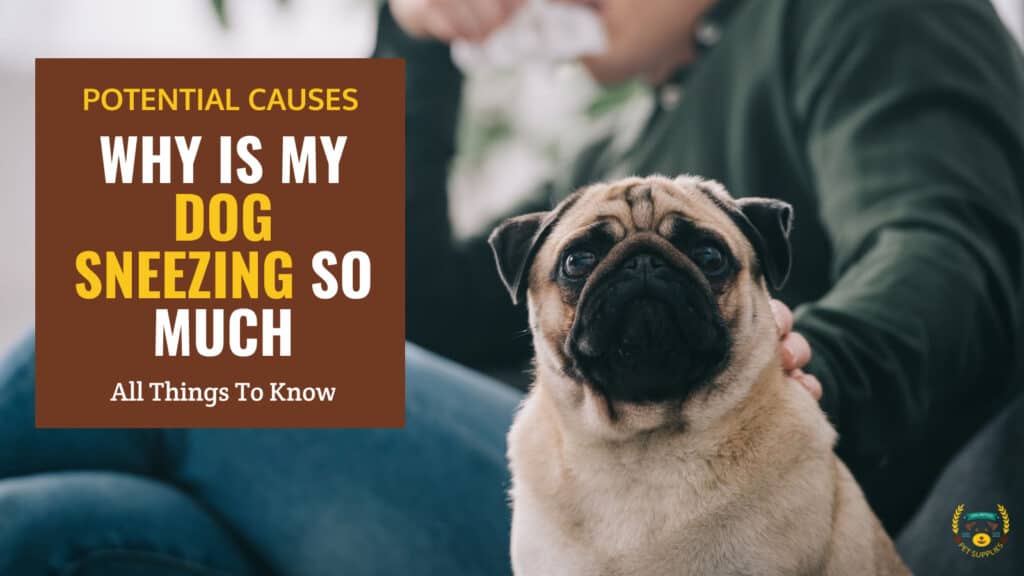
Summary
- Excessive dog sneezing often indicates health issues needing a vet visit.
- Causes: Infections, allergies, foreign objects, growths, dental problems.
- Warning signs: Frequent sneezing, nasal discharge, coughing, appetite loss, lethargy.
- Treatment: Varies based on cause, may include antibiotics, antihistamines, surgery.
Excessive sneezing in dogs can indicate an underlying illness needing veterinary diagnosis. While occasional sneezing is normal, repetitive episodes often involve concerning symptoms like nasal discharge, coughing, or changes in appetite and energy level.
Any severe, recurrent sneezing, especially combined with other symptoms, requires prompt veterinary exam and possible treatment with antibiotics, allergy medication, or surgical intervention. Pay close attention to sneezing patterns in your dog, as they can reflect disease.
In this article, we will cover potential causes of excessive sneezing in dogs as well as remedies to try; we will also cover extreme cases where a vet visit is necessary. We will also answer some widely asked questions to help cover all the aspects of the topic at hand.
- 1) Common Causes for Excessive Sneezing
- 2) When Sneezing Warrants a Veterinary Visit
- 3) Common Infections Causing Excessive Sneezing
- 4) Allergies as a Cause of Excessive Sneezing
- 5) Other Potential Causes
- 6) Diagnosing the Cause of Excessive Sneezing
- 7) Treatment Options Depending on Cause
- 8) Preventing Excessive Sneezing
- 9) Frequently Asked Questions
- 10) Final Thoughts
Common Causes for Excessive Sneezing
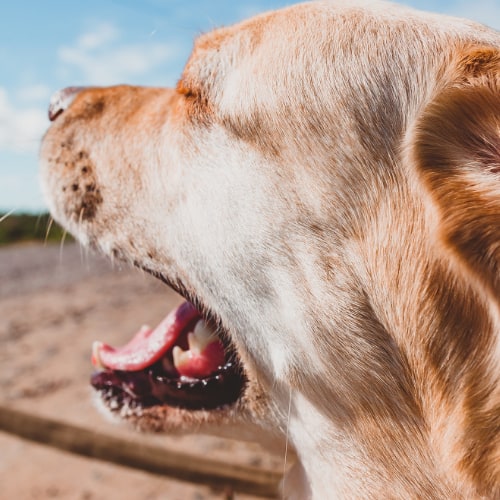
Excessive sneezing rarely occurs on its own and often signals some underlying health issue that prompts veterinary attention.
Some of the most frequent culprits for recurrent or severe sneezing include:
Infections
Upper respiratory infections, kennel cough, and canine influenza frequently cause bouts of harsh, explosive sneezing often accompanied by hacking coughs. The nasal discharge from infection also irritates the nasal passages triggering sneezes.
Allergies
Allergens like pollen, dander or mold spores prompt histamine reactions in the nasal tissue, resulting in chronic, repetitive sneezing attacks typically seen seasonally or with exposure to triggers.
Foreign Objects
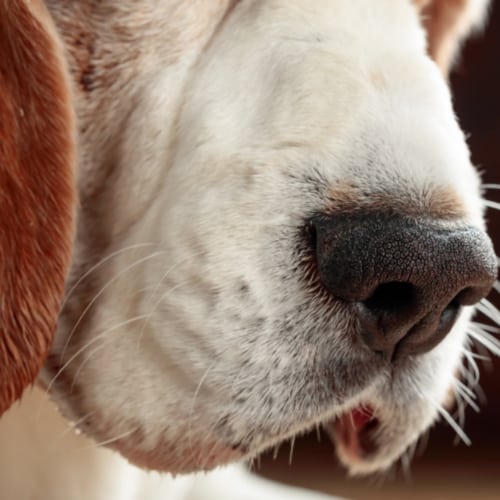
Grass seeds, tiny sticks or burrs caught in the nostril cause sneezing as they irritate the sensitive nasal lining. Dogs try pawing them out resulting in more inflammation.
In some cases, dogs might also ingest foreign objects like feces, which can lead to digestive problems. Learn how to prevent your dog from consuming feces to minimize the risk of foreign object ingestion.
Nasal Growths
Tumors or polyps in the nasal passages provoke sneezing often with bloody discharge. They slowly obstruct nasal airflow.
Dental Infections
Abscessed teeth or gum disease creates pus drainage running down the throat. Dogs sneeze trying to expel the discharge.
When Sneezing Warrants a Veterinary Visit
While the occasional sneeze is normal in dogs, excessive or recurrent sneezing episodes can indicate an underlying health problem needing veterinary attention.
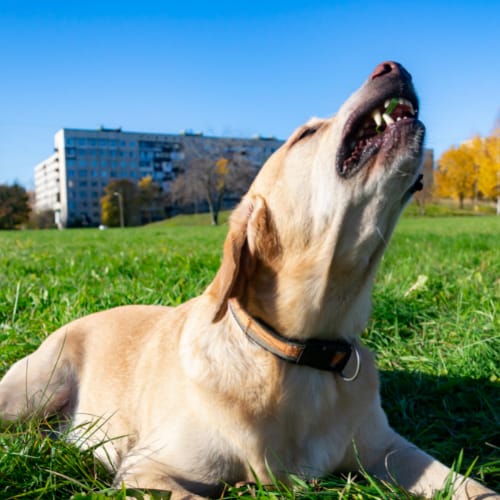
Pay particular concern if the sneezing occurs in severe bouts or sneezing fits or is combined with other symptoms like:
- Nasal discharge - especially if thick, yellow or green
- Coughing spells
- Gagging or retching
- Loss of appetite or lethargy
- Squinting eyes or eye discharge
- Red, inflamed nostrils
- Nasal bleeding
These associated symptoms suggest infection, allergy issues, foreign objects lodged in nasal passages, or more serious conditions like tumors or nasal polyps.
Seek prompt veterinary care if your dog experiences any of these, or exhibits heavy breathing, difficulty breathing, or excessive panting:
- Sneezes more than 3-4 times in a row
- Has multiple sneezing fits daily
- Shows signs of nasal pain like pawing at the face
- Has any of the above additional symptoms
While sneezing seems a minor symptom, frequent or severe episodes signify a disease needing veterinary diagnosis and treatment. Don't hesitate to call your vet if your dog seems to sneeze excessively. Prompt care provides relief and prevents complications.
Common Infections Causing Excessive Sneezing
Several highly contagious respiratory infections in dogs produce sneezing as a main symptom. These include upper respiratory infections, kennel cough and canine influenza.
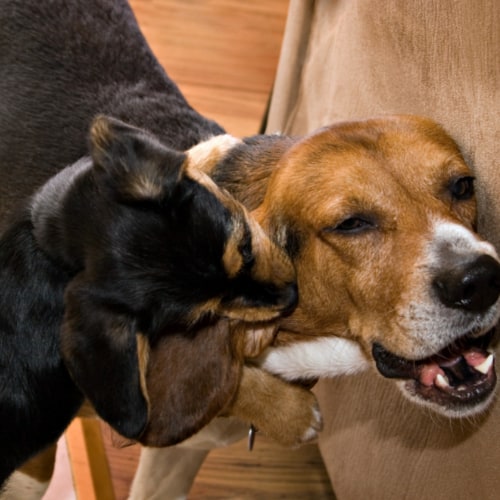
Upper Respiratory Infections
Bacterial and viral infections of the nasal passages, throat and windpipes cause inflammation, resulting in harsh, repetitive sneezing. The infections also generate copious nasal discharge, which further irritates nasal tissues, triggering sneezes.
Common pathogens include adenovirus, parainfluenza virus, Streptococcus zooepidemicus, and Bordetella. Antibiotic or antiviral medication prescribed by a vet clears the infection.
Kennel Cough
Kennel cough represents a highly transmittable upper respiratory infection producing forceful, honking coughs along with repetitive sneezing fits. The main culprit, Bordetella bronchiseptica bacteria, spreads swiftly between dogs in close quarters like shelters and boarding kennels, giving kennel cough its name.
However, it frequently affects household pets exposed to infected dogs in parks or show venues. Veterinarians treat kennel cough with antibiotics and cough suppressants for symptom relief while infection clears usually within 1-2 weeks.
Canine Influenza
Closely resembling human flu, canine influenza emerged in racing greyhounds in Florida in 2004 but now affects dogs nationwide.
Primary strain H3N8 causes fever, lethargy, appetite loss, and unremitting coughing/sneezing spells often in thick nasal discharge. Rare strain H3N2 produces more severe illness.
Apart from supportive care, most dogs recover at home with extra rest/hydration, but secondary pneumonia is a complication requiring urgent treatment.
As respiratory infections are highly contagious, vets typically prescribe isolation and containment measures along with medical therapy for affected dogs. Prompt diagnosis and treatment help provide relief while preventing the spread to other dogs.
Allergies as a Cause of Excessive Sneezing
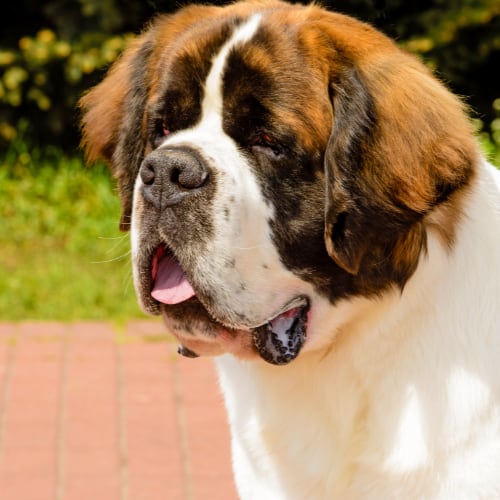
Allergies represent a very common source of chronic sneezing in dogs. Allergic reactions cause histamine release in nasal tissues triggering spells of repetitive sneezes trying to expel allergens from nasal passages.
Symptoms of Allergy-Related Sneezing
The most characteristic signs of allergy sneezing include:
- Seasonal flares - eg. spring, summer
- Sneezes occur frequently in clusters
- Clear mucus discharge often drips after sneezes
- Itchy skin, ears, paws, and eyes may accompany
- The dog may also lick the feet and rub the face
Unlike infection, allergy sneezing lacks fever, and the dog feels well otherwise. The nasal discharge remains clear rather than thick and discolored as seen in infection.
Common Environmental Allergy Triggers
Tree pollen, grass pollen, weed pollen, molds, and house dust mites often cause inhalant allergies resulting in seasonal sneezing flares when pollen counts peak.
Dogs with year-round indoor allergies to dust mites, mold or dander sneeze chronically indoors, needing home allergen avoidance and air filtration systems.
Food Allergies
While food allergies more commonly cause skin or gastrointestinal signs like itching or diarrhea, they can occasionally also prompt nasal allergic reactions.
Placing dogs on elimination diet trials to avoid suspect ingredients like beef, dairy or wheat helps determine offending foods.
As allergic dogs have overresponsive immune systems, allergen avoidance, antihistamines and immune modulators all help control sneezing episodes.
Understanding your dog's unique needs is vital, especially when allergies are in the picture. The appropriate diet is not only fundamental for managing allergic reactions but also for promoting your dog's overall health. Tailored dietary solutions for allergic dogs are not just about avoiding triggers but incorporating beneficial nutrients that support immune health and reduce inflammatory responses.
Other Potential Causes
While infections and allergies account for most chronic sneezing, various other problems can also be at play.
Foreign Objects
It is common for grass awns, tiny sticks, foxtails, or burrs to get trapped in the nostrils while dogs explore outdoors. These lodged objects cause severe irritation resulting in painful sneezing fits and nose rubbing. Speedy veterinary removal resolves the problem.
Nasal Mites
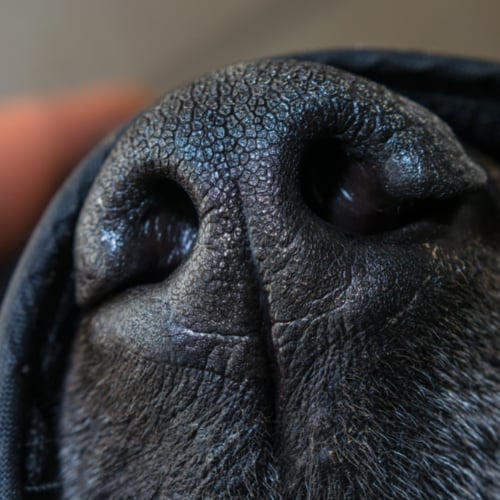
The irritating mite Pneumonyssoides canis spends its life cycle inside the nasal passages, causing inflammation, discharge and chronic sneezing.
Diagnosis involves a nasal exam and microscopy of samples under the microscope to ID the mites. Treatment requires topical and systemic parasiticides.
Nasal Tumors/Polyps
Slow-growing masses like adenocarcinoma, chondrosarcoma or benign polyps in the nasal chambers also prompt recurrent sneezing. They often bleed with secondary bacterial infection worsening discharge and sneezes.
Imaging tests assist the diagnosis prior to surgical removal, which carries the best prognosis if the tissue margins are clean.
Dental Infections
Severe gum disease, tooth fractures or abscesses produce oral bacteria and pus which dogs often sneeze out. The underlying oral infection requires antibiotic therapy combined with professional dental cleaning and extractions or tooth removal.
Miscellaneous factors like throat irritation from vomiting episodes or chemical fumes can also spark short-term sneezing. Still, ongoing irritation requires veterinary workup for potential underlying disease.
Diagnosing the Cause of Excessive Sneezing
Since various conditions can prompt chronic sneezing, veterinary intervention helps pinpoint the specific trigger for a targeted treatment.
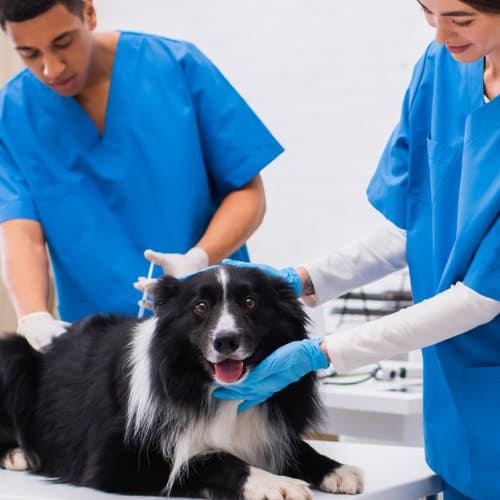
Veterinary Exam and Diagnostic Tests
The vet first takes a detailed history of the sneezing duration, severity, any seasonal pattern, and associated symptoms. A physical exam assesses the nasal passages, mouth, lymph nodes, and chest. Initial testing involves the following:
- Bloodwork checking for infection and inflammation
- Fecal exam checking for parasites
- Nasal exam using tiny endoscopes
- Nasal swabs/flush samples assessing discharge
- Chest and nasal x-rays to visualize infection or masses
- Allergy testing
These baseline tests rule out the most common sneezing causes, guiding additional testing if needed like biopsy of masses or nasal cultures.
Maintaining a Symptom Diary
Pet owners play a key role of tracking sneezing episodes at home by documenting things like:
- Frequency and length
- Triggers like pollen exposure, food intake
- Response to any trial therapies
Keeping a sneezing diary shares insights a one-time clinic visit might miss, which helps diagnosis by identifying sneezing patterns responsive to treatment.
Treatment Options Depending on Cause
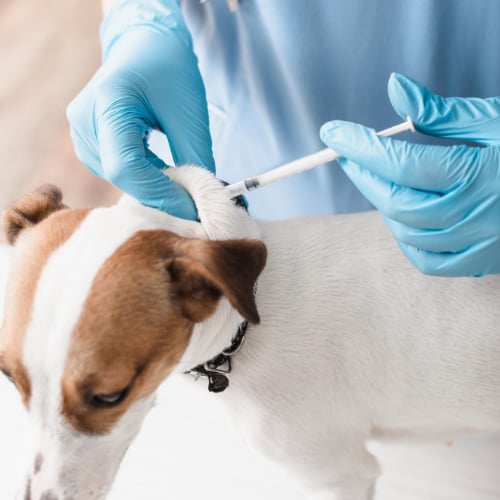
Once the source of sneezing is confirmed, targeted therapies can provide relief.
Bacterial infections causing sneezing require antibiotic therapy usually for 2-3 weeks. Viral infections are treated supportively to resolve over time as many lack effective antivirals. Cough suppressants also reduce harsh sneezing spells.
Allergy Medications
For allergy-related sneezing, veterinary options include oral antihistamines like diphenhydramine or hydroxyzine to control symptoms day-to-day. Nasal steroid sprays also reduce nasal inflammation.
For the best results, allergen avoidance is key - keeping indoor dogs away from triggers or walks during peak pollen times. Also, immunotherapy allergy shots can help desensitize dogs long-term.
Removal Procedures
Foreign material lodged in nasal passages requires prompt surgical removal under anesthetic to provide relief and prevent secondary infection. Tumors may respond to radiation or chemotherapy, but nasal masses often warrant surgical extraction balancing complications of extensive resection. Tooth extractions treat dental abscess-induced sneezing.
Environmental Control
For indoor allergens like dust mites or molds, thoroughly washing the dog's bedding weekly in hot water over 130°F and vacuuming with HEPA filters and portable air cleaners all help reduce sneezing triggers.
Follow-up Care
It is essential to schedule recheck veterinary visits to confirm the resolution of sneezing and discharge after finishing treatment. Recurrent signs indicate further diagnostic and therapeutic steps are needed for adequate control.
With targeted therapy guided by an accurate sneezing diagnosis, episodes can resolve, allowing dogs to feel more comfortable long-term. Preventative approaches also assist.
Preventing Excessive Sneezing
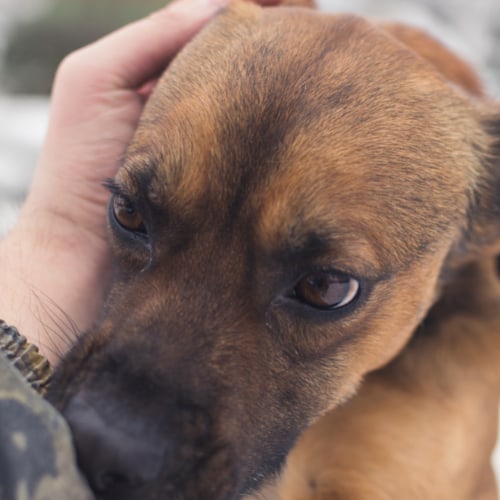
While sneezing cannot be fully prevented, various measures can reduce episodes.
Keeping Vaccinations Current
Ensuring pets receive all core vaccines on schedule greatly reduces the risk of infections causing harsh sneezing fits. These include:
- Distemper/Parvo combo vaccines every 3 years
- Bordetella (kennel cough) - yearly, or every 6 months for boarded dogs
- Canine flu vaccine where prevalent
Avoiding Irritants and Allergens
Identifying and limiting exposure to sneezing triggers allows fewer flare-ups, whether seasonal grass pollen or food allergies. Keeping dogs indoors when pollen counts peak, washing paws after walks and using air filters all assist allergy-prone pets.
For food allergies, novel protein or hydrolyzed diets free of common reactive ingredients bring relief. Flea control prevents bites from sparking histamines. Saying no to table scraps reduces dietary triggers.
Maintaining Good Oral Health
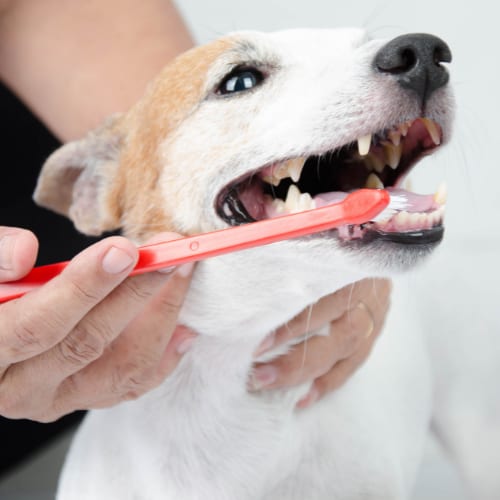
Regular professional dental cleanings and oral exams help prevent painful dental abscesses prompting sneezing. Brushing teeth weekly combined with dental treats/chews keeps gums healthy between vet visits. Promptly treating any oral or respiratory infections helps prevent recurrence.
Frequently Asked Questions
We compiled a list of the most commonly asked questions to make sure you have all your queries answered.
How Often Is Too Often For Sneezing?
More than 2-3 sneezing bouts daily merits veterinary attention to diagnose the irritant. Single sneezes are fine, but clusters of 5-10 explosive sneezes signal underlying inflammation.
My Dog Sneezes A Lot - Is It Serious?
While some sneezing is normal, new onset frequent episodes can reflect a developing illness. The key is assessing other symptoms (discharge, lethargy, appetite changes) and examining nasal passages to gauge severity.
Are There Home Remedies To Help With Sneezing?
No home remedies reliably resolve sneezing in the long-term. Saltwater nasal rinses may offer some relief, but correct diagnosis and specific medications (antibiotics, antihistamines, etc) prescribed by your vet work best guided by exam findings.
How Are Allergy Sneezes Different From Infection?
Allergy sneezes tend to be repetitive, seasonal and accompanied by itchy eyes or feet. The nasal discharge stays clear. Infection sees green/yellow discharge, fever, and the dog feels unwell. Diagnostic testing assists in determining type.
Will My Dog Spread Sneezing To Other Pets?
Highly contagious infections like kennel cough do spread swiftly between dogs sharing close quarters, but allergy and foreign irritant sneezing do not transmit to other pets - so risks depend on the cause.
Can Sneezing Harm My Dog?
Explosive sneezing fits can lead to nose bleeds or secondary head and eye infections. And excessive episodes tire pets. The key is pursuing a diagnosis rather than waiting for it to resolve or worsen. Prompt specific treatment brings the best relief.
Final Thoughts
Excessive sneezing in dogs often signals underlying illness needing prompt veterinary diagnosis and care. You should carefully track sneezing patterns and be alert to any episodes occurring frequently, forcefully, or combined with other concerning symptoms like nasal discharge.
As various conditions can cause chronic sneezing, have your vet systematically examine your dog and pursue diagnostic testing to pinpoint the root irritant. Treatment depends on the cause identified, ranging from antibiotics for infection to allergy control, object removal, or dental procedures.
Preventative steps are also key, including maintaining vaccinations, good dental care, and limiting irritant exposure. Stay vigilant to any recurrent sneezing, and quickly consult your vet to uncover the source for targeted treatment and relief.
Thanks for reading!

